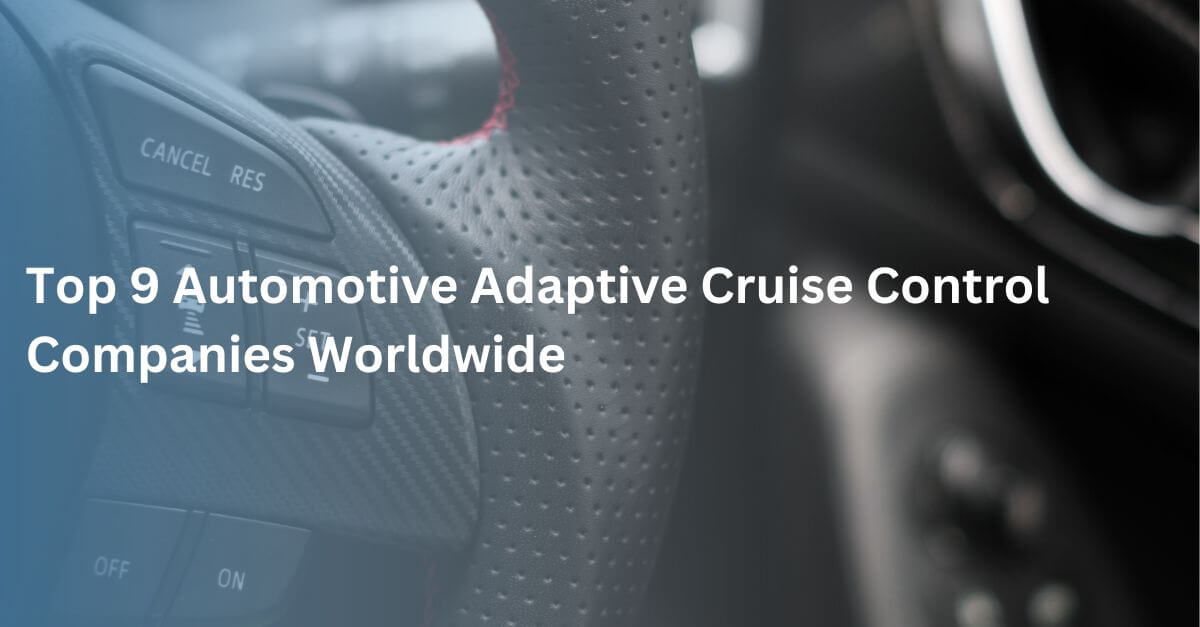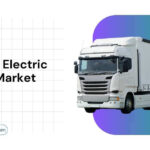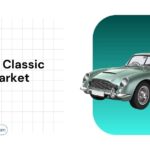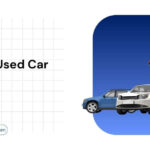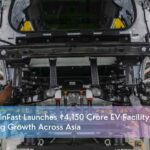“Global Automotive Adaptive Cruise Control Market: Growth, Outlook, and Competitive Analysis, 2018 – 2030” is the most recent market study released by Credence Research, Inc. The global automotive adaptive cruise control market had a revenue of about USD 31.6 billion in 2022. It is predicted to increase at a CAGR of more than 6.9% from 2018 to 2030, reaching about USD 50.4 billion.
Market Overview
Adaptive cruise control, abbreviated as ACC, is a cruise control advanced driver-aid system that may be installed in road cars. Its function automatically alters the vehicle’s speed to keep a safe space between the vehicles in front of it. As of 2019, it is also referred to by twenty different names, each describing the same fundamental functioning. Another name for this feature is “Dynamic cruise control.” Information gleaned from onboard sensors is used to inform the controller’s decisions. These kinds of systems may use a radar or laser sensor or a camera setup to enable the car to apply the brakes when it senses that it is getting close to another vehicle in front of it and then to speed up when the traffic allows it. The technology behind adaptive cruise control (ACC) is widely regarded as an essential component of autonomous vehicles of the future. With the maintenance of proper spacing between cars and the reduction of driving errors, this technology improves passenger safety and convenience and contributes to expanding road capacity.
According to the criteria established by SAE International, an automobile is deemed to be at the Level 1 autonomy level if it has an autonomous cruise control feature. When this feature, known as lane centering, is combined with an additional driver assistance function, the automobile is elevated to the level of autonomy known as Level 2. Many countries have devised creative ways to reduce rising traffic accidents worldwide. To make cars safer, governments all over the world have given automakers strict rules to follow. There are safety rules for installing ACC systems in cars that several transportation groups and unions have set up. Leading companies have invested much money into research and development to make long-range RADAR, which is used with adaptive cruise control to change the car’s speed based on how fast other cars are going. The adaptive cruise control market is driven by consumers’ growing desire for cutting-edge technologies that help them avoid accidents. ACC systems will be in higher demand over the next few years because more car accidents will occur. Also, the fact that its technology was always getting better made the market want adaptive cruise control. The adaptive cruise control market is growing because people have more money and want to buy cars with these systems. More people might want these systems during the projection period if they buy more passenger cars.
Company Profile
- Continental AG
|
Category |
Details |
|
Name |
Continental AG |
|
Founded |
1871 |
|
Headquarters |
Hanover, Germany |
|
Industry |
Automotive Manufacturing |
|
Key People |
Wolfgang Reitzle (Chairman), Nikolai Setzer (CEO) |
|
Products |
Tires, brake systems, powertrains, chassis components, automotive safety, vehicle electronics |
|
Employees (2023) |
202,763 |
|
Parent Company |
Schaeffler Group (46% ownership) |
|
Website | |
|
Subsidiaries |
General Tire, Continental Automotive Systems, Hoosier Racing Tire, Matador Phoenix AG, VDO |
|
Divisions |
Chassis and Safety, Powertrain, Interior, Tires, ContiTech, ADAS (Advanced Driver Assistance Systems) |
|
Global Presence |
56 countries and markets |
|
| |
Continental AG, also known as Continental or Conti informally, is a German multinational automotive parts manufacturer that manufactures tires, brake systems, interior electronics, automotive safety, powertrain and chassis components, tachographs, and other parts for the automotive and transportation industries. Continental’s six divisions are Chassis and Safety, Powertrain, Interior, Tires, ContiTech, and ADAS (Advanced Driver Assistance Systems). Its headquarters are in Hanover, Lower Saxony. Continental is the world’s fourth-largest tire manufacturer. Continental sells tires for automobiles, motorbikes, and bicycles worldwide under the Continental name. Furthermore, it manufactures and distributes products for the EU and Russia under other trademarks such as Viking (limited global distribution), General Gislaved, Semperit Tyres, and Barum. Simex tires, Uniroyal, Sportiva, Mabor, and Matador, are all brand names.
- Delphi Technologies Inc.
|
Category |
Details |
|
Name |
Delphi Technologies Inc. |
|
Founded |
December 4, 2017 (as a spin-off from Delphi Automotive PLC) |
|
Defunct |
October 1, 2020 (acquired by BorgWarner Inc.) |
|
Headquarters |
London, United Kingdom |
|
Industry |
Automotive Parts Manufacturing |
|
Key People |
Richard F. “Rick” Dauch (CEO until acquisition) |
|
Products |
Powertrain Systems, Fuel Injection Systems, Ignition Systems, Engine Management Systems, Software Solutions, Aftermarket Services |
|
Employees (2019) |
21,000 |
|
Parent Company |
BorgWarner Inc. (since 2020) |
|
Website | |
|
Subsidiaries |
None (prior to acquisition) |
|
Global Presence |
Operations in over 24 countries across North America, Europe, Asia, and beyond |
|
| |
Delphi Technologies functioned as a standalone automaker from 2017 to 2020 before being acquired by BorgWarner Inc. Delphi Technologies was formed when Delphi Automotive, formerly a division of General Motors, changed its name to Aptiv and spun off its powertrain and aftermarket-related activities to a separate company, Delphi Technologies PLC. The 4.5 billion dollar company began trading on the New York Stock Exchange under the former Delphi Automotive ticker symbol, DLPH. It was added to the S&P MidCap 400 Index on December 6, 2017. The company provided combustion systems, electrification components, software, controls in the passenger and commercial vehicle categories, and vehicle maintenance through a global aftermarket network. The corporation employed 21,000 employees, including 5,000 engineers.
- Denso Corporation
|
Category |
Details |
|
Name |
Denso Corporation |
|
Founded |
December 16, 1949 |
|
Headquarters |
Kariya, Aichi Prefecture, Japan |
|
Industry |
Automotive Components Manufacturing |
|
Key People |
Koji Arima (President and CEO) |
|
Products |
Powertrain Systems, Thermal Systems, Electronic Systems, Electric Systems, Information and Safety Systems, Small Motors, Industrial Systems, Consumer Products |
|
Employees (2022) |
Approximately 168,813 |
|
Parent Company |
Independent (Toyota Motor Corporation is a major shareholder) |
|
Website | |
|
Subsidiaries |
Denso International America, Denso Europe, Denso Manufacturing UK Ltd., Denso Korea, Denso India, among others |
|
Divisions |
Thermal Systems, Powertrain Systems, Electronics, Electric Systems, Small Motors, Information and Safety Systems |
|
Global Presence |
Operations in over 200 subsidiaries across more than 35 countries and regions |
|
| |
Automotive component manufacturer DENSO Corporation is headquartered in Kariya, Japan, in the Aichi Prefecture. Nippon Denso Co. Ltd. was founded in 1949 as the company’s original name following its separation from Toyota Motor. Toyota owns around 25% of the company. Although part of the Toyota Group of Companies, sales to the Toyota Group accounted for less than half of overall income in the fiscal year ending in March 2016 (44% of revenue came from other manufacturers in Japan, Germany, the United States, and China). In 2016, Denso was the world’s fourth-largest supplier of automobile parts. Denso was rated #278 in the Fortune Global 500 list in 2022, with 168,813 employees.
- Magna International
|
Category |
Details |
|
Name |
Magna International Inc. |
|
Founded |
1957 |
|
Founder |
Frank Stronach |
|
Headquarters |
Aurora, Ontario, Canada |
|
Industry |
Automotive Manufacturing and Engineering |
|
Key People |
Swamy Kotagiri (CEO), Vincent J. Galifi (CFO), William L. Young (Chairman) |
|
Products |
Automotive systems, assemblies, modules, components; Engineering and program management services |
|
Employees (2022) |
Approximately 158,000 |
|
Website | |
|
Subsidiaries |
Magna Steyr, Magna Powertrain, Magna Exteriors, Magna Seating, Magna Electronics, Cosma International, Magna Closures |
|
Global Presence |
Operations in 28 countries across North America, Europe, Asia, South America, and Africa |
|
| |
Magna International Inc. is a Canadian auto parts company. It is one of Canada’s largest corporations and has been named to the Forbes Global 2000 list for 2020. Since 2001, the company has continually ranked in the Fortune Global 500 list as North America’s largest vehicle parts maker by selling original equipment components. It manufactures automotive systems, assemblies, modules, and components for General Motors, Ford, Stellantis, BMW, Mercedes, VW, Toyota, Tesla, and Tata Motors. Swamy Kotagiri is the CEO of the company, which is headquartered in Aurora, Ontario. It employs 158,000 people across 28 countries in 342 manufacturing activities and 91 product research, engineering, and sales centers. Magna is controlled by a corporate constitution that mandates profit sharing to employees and shareholders. According to firm founder Frank Stronach, the terms of this contract constitute a “fair enterprise system.”
- WABCO
|
Category |
Details |
|
Name |
WABCO Holdings Inc. |
|
Founded |
1869 |
|
Defunct |
May 29, 2020 (acquired by ZF Friedrichshafen AG) |
|
Headquarters |
Bern, Switzerland |
|
Industry |
Commercial Vehicle Control Systems |
|
Key People |
Jacques Esculier (Chairman and CEO until acquisition) |
|
Products |
Braking systems, Stability control, Suspension systems, Transmission automation, Aerodynamic solutions, Fleet management systems, Advanced driver assistance systems (ADAS) |
|
Employees (2019) |
Approximately 14,000 |
|
Parent Company |
ZF Friedrichshafen AG (since 2020) |
|
Website | |
|
Subsidiaries |
Transics International, R.H. Sheppard Co., MICO Inc., Laydon Composites Ltd. |
|
Global Presence |
Operations in over 40 countries across Europe, North America, Asia, and Africa |
|
| |
WABCO Holdings, Inc. manufactures electronic braking, stability, suspension, and transmission automation systems for heavy-duty commercial vehicles in the United States. Its goods are found in numerous commercial vehicles such as trucks, buses, trailers, and off-highway vehicles, however, they only serve niche functions. The company was acquired by German car parts manufacturer ZF Friedrichshafen in March 2019, and the transaction was completed in May 2020. On March 28, 2019, it was publicly revealed that the company would be acquired by German auto parts manufacturer ZF Friedrichshafen for $USD7 billion in all-cash terms at $136.50 per share. The merger will be completed by the start of 2020.
- Robert Bosch GmbH
|
Category |
Details |
|
Name |
Robert Bosch GmbH |
|
Founded |
1886 |
|
Founder |
Robert Bosch |
|
Headquarters |
Gerlingen, near Stuttgart, Germany |
|
Industry |
Engineering, Electronics, Automotive, Consumer Goods |
|
Key People |
Dr. Stefan Hartung (Chairman of the Board of Management), Prof. Stefan Asenkerschbaumer (Deputy Chairman) |
|
Products |
Automotive Components, Industrial Technology, Power Tools, Home Appliances, Security Systems, IoT Solutions |
|
Employees (2022) |
Approximately 420,300 |
|
Website | |
|
Subsidiaries |
Bosch Rexroth AG, BSH Hausgeräte GmbH, Bosch Engineering GmbH, ETAS GmbH, among others |
|
Global Presence |
Operations in over 60 countries with products sold in around 150 countries |
|
| |
Robert Bosch GmbH, also known as Bosch and styled as BOSCH is a German multinational engineering and technology firm located in Gerlingen, Germany. In 1886, Robert Bosch founded the company in Stuttgart. 94% of Bosch is owned by the charitable organization Robert Bosch Stiftung. The charity has no voting rights, works on health and social concerns unrelated to Bosch’s business, and is funded by owning most of the company’s stock. Bosch’s primary operational areas are mobility (hardware and software), consumer products (including home appliances and power tools), industrial technology (including drive and control), and energy and building technology.
- Valeo
|
Category |
Details |
|
Name |
Valeo |
|
Founded |
1923 |
|
Founder |
Eugène Buisson (as Société Anonyme Française du Ferodo – SAFF) |
|
Headquarters |
Paris, France |
|
Industry |
Automotive Supplier |
|
Key People |
Christophe Périllat (Chief Executive Officer), Jacques Aschenbroich (Chairman of the Board) |
|
Products |
Powertrain Systems, Comfort and Driving Assistance Systems, Thermal Systems, Visibility Systems, Imagery Systems, Electric Systems |
|
Employees (2022) |
113,600 |
|
Website | |
|
Subsidiaries |
Valeo Siemens eAutomotive, Valeo Service, Valeo Lighting Systems, among others |
|
Global Presence |
Operations in 33 countries with 184 production plants, 21 research centers, 59 development centers, and 15 distribution platforms |
|
| |
Valeo is a French multinational automotive supplier headquartered in France and listed on the Paris Stock Exchange (CAC-40 Index). It provides a wide range of products to the aftermarket and automakers. The Group employs 113,600 people in 33 countries. It comprises 186 production sites, 59 research and development centers, and 15 distribution hubs. Its strategy is concentrated on innovation and growth in emerging markets and high-growing countries. Valeo’s sales climbed by 4% to €19.1 billion in 2018. It was also named France’s top patent filer from 2016 to 2018.
- Hitachi Corporation
|
Category |
Details |
|
Name |
Hitachi, Ltd. (株式会社日立製作所) |
|
Founded |
1910 |
|
Founder |
Namihei Odaira |
|
Headquarters |
Tokyo, Japan |
|
Industry |
Conglomerate (Information Technology, Infrastructure, Energy, Automotive Systems, Healthcare, Consumer Products, and more) |
|
Key People |
Toshiaki Higashihara (Chairman), Keiji Kojima (President and CEO) |
|
Products and Services |
Information & Telecommunication Systems, Social Infrastructure & Industrial Systems, Electronic Systems & Equipment, Construction Machinery, High Functional Materials & Components, Automotive Systems, Smart Life & Ecofriendly Systems, Financial Services |
|
Employees (2022) |
Approximately 370,000 |
|
Website | |
|
Subsidiaries and Affiliates |
Hitachi Vantara, Hitachi Rail, Hitachi Energy, Hitachi High-Tech, Hitachi Construction Machinery, Hitachi Astemo, Hitachi Metals |
|
Global Presence |
Operations in over 100 countries across Asia, Europe, Americas, Middle East, and Africa |
|
| |
Hitachi, Ltd. is a Japanese multinational firm headquartered in Chiyoda. It was a part of the Nissan zaibatsu, the DKB Group, and the Fuyo Group of enterprises until DKB and Fuji Bank (the Fuyo Group’s cornerstone) merged to become the Mizuho Financial Group. It is the Hitachi Group’s parent corporation (Hitachi Gurpu). In 2020, Hitachi will be active in various industries, including infrastructure, information technology, and big data technologies such as artificial intelligence and the Internet of Things. Hitachi is listed on the Tokyo and Nagoya stock exchanges, and its Tokyo listing is included in the Nikkei 225 and TOPIX Core30 indices. It is ranked 129th in the 2012 Forbes Global 2000 and 38th in the 2012 Fortune Global 500.
- BorgWarner Inc.
|
Category |
Details |
|
Name |
BorgWarner Inc. |
|
Founded |
1928 |
|
Headquarters |
Auburn Hills, Michigan, United States |
|
Industry |
Automotive Components Manufacturing |
|
Key People |
Frédéric Lissalde (President and CEO), Alexis P. Michas (Non-Executive Chairman) |
|
Products |
Turbochargers, Electric Motors, Power Electronics, Drivetrain Systems, Emissions Controls, Thermal Management Systems |
|
Employees (2022) |
Around 52,000 |
|
Website | |
|
Subsidiaries |
Delphi Technologies, AKASOL AG, Remy International, Sevcon |
|
Global Presence |
Operations in 24 countries across the Americas, Europe, and Asia |
|
| |
The American automotive supplier BorgWarner Inc. has its corporate headquarters in Auburn Hills, Michigan. The corporation employs around 52,000 individuals and manages manufacturing facilities and technological systems in 93 locations across 22 countries. BorgWarner is one of the top 25 global suppliers to the automotive industry. Frédéric Lissalde has been the CEO of BorgWarner Inc since August 1st, 2018. The Borg-Warner Corporation was founded in 1928. It was formed by amalgamating many companies, including Mechanics Universal Joint, Warner Gear, Marvel-Schebler, and Borg & Beck. The Borg-Warner Corporation left in 1987 due to complex financial transactions, but a new company continued the operation with the same name. At the same time, Borg-Warner Automotive Inc. was formed as a subsidiary of the new company. The original Borg-Warner Business was renamed Borg-Warner Security Corporation after that.

